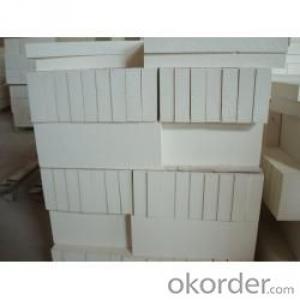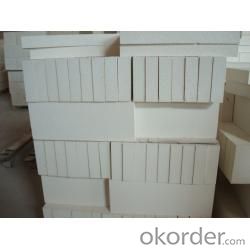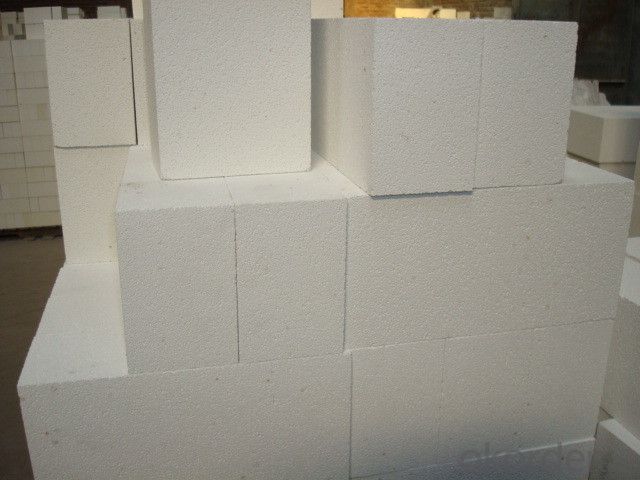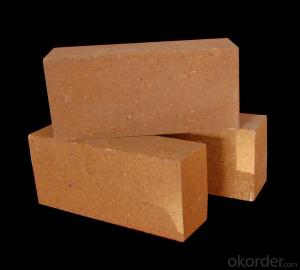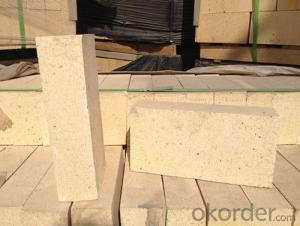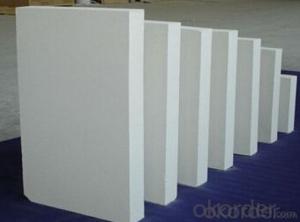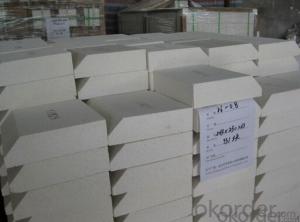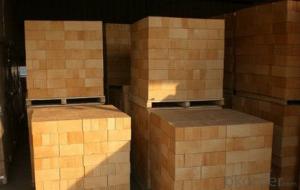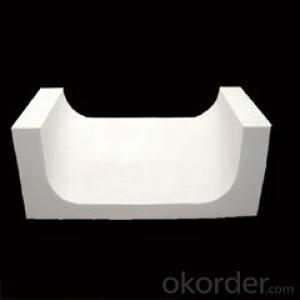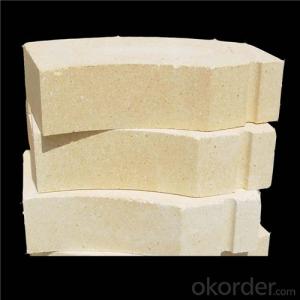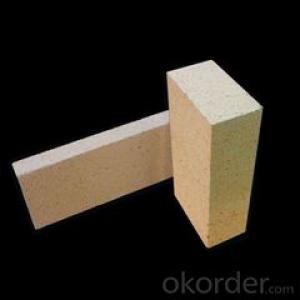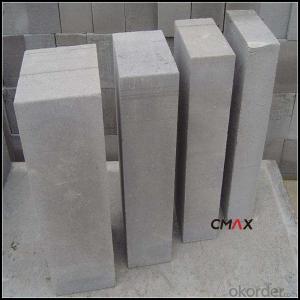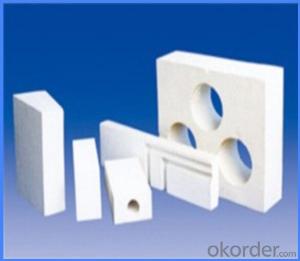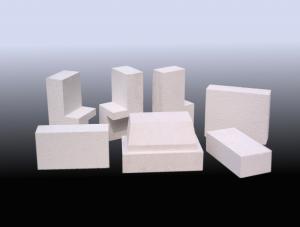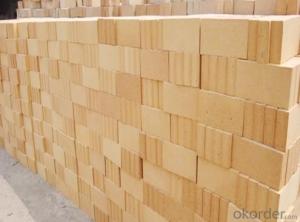Refractory White Brick Fire Brick Fused Azs Brickinsulating Fire Brick
- Loading Port:
- China main port
- Payment Terms:
- TT or LC
- Min Order Qty:
- 3 m.t.
- Supply Capability:
- 10000 m.t./month
OKorder Service Pledge
OKorder Financial Service
You Might Also Like
Thermal Insulation Fire Clay Brick
CNBM conforms strictly to the requirements of ISO 9000 quality control system during the production. MSDS is also available if you want. The thermal insulation fire clay brick meet with the requirements of ASTM & JIS standards. So please stay cool with our quality.
Application
Insulating Fire Brick are used for the lining of converter, alternating current arc furnace, direct Current arc furnace and the ladle slag line, etc.
Company Advantage
(1)Long Insulating Fire Brick manufacture history: 25 years manufacturer
(2)Advanced equipment
(3)Diversification of production standards: ISO ANSI FEPA JIS ASTM
(4)Flexible payment: T/T L/C D/P D/A
(5)Professional marketing team and after-sale service
(6)Free sample
Insulating Fire Brick main feature:
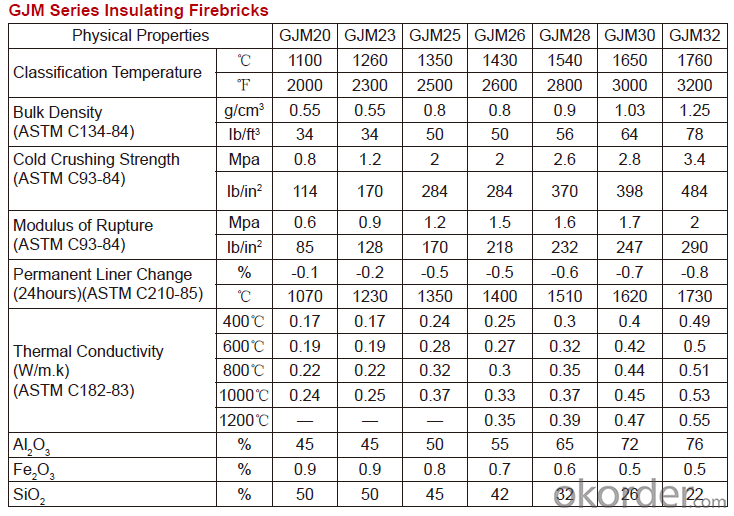
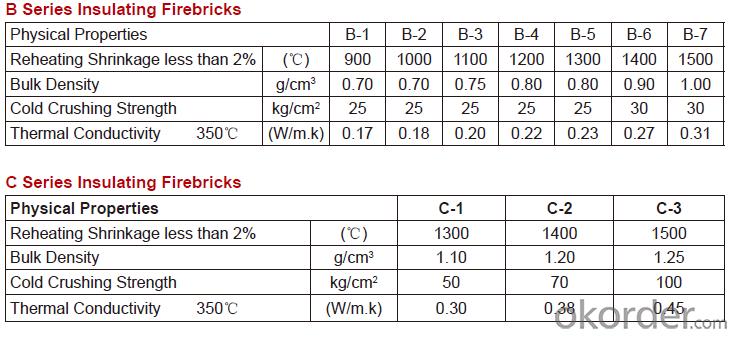
Equipment
1 unit of Ceramic Abrasive (SG Abrasive) pilot production line
2 units of Compact grain Abrasive pilot production lines
1 unit of high-end coated abrasives (abrasive cloth) production line
2 units of Boron Carbide production lines
3 large flexible crushing and sieving lines for grit production lines
2 units of 2000KVA furnaces for Boron Carbide fusion
6 units of 5000KVA-10000KVA dumping type electric arc furnaces for Brown Fused Alumina fusion
FAQs
Q1 What’s the transport method?
A1 FCL delivery goods with wooden pallet or wooden case by sea; If LCL delivery, must with wooden case; Sometimes need open top, flat rack or bulk cargo.
Q2 What’s the required payment term?
A2 Generally 30% TT as the prepayment, 70% TT before delivery. If need, 100% Irrevocable Letter of Credit or negotiation.
Q3 Which country are our products exported to?
A3 Apart from entire Chinese market, the US, Russia, Japan, Korea, Australia and some Southeast Asian Nations.
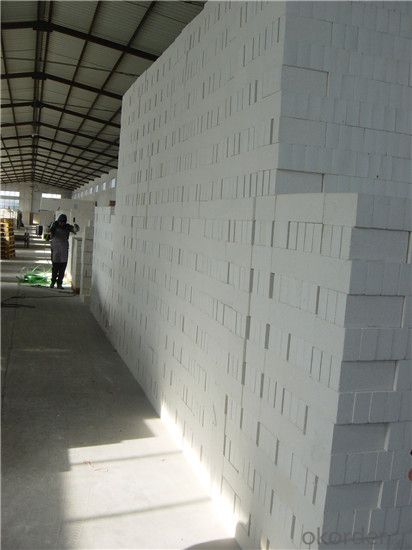
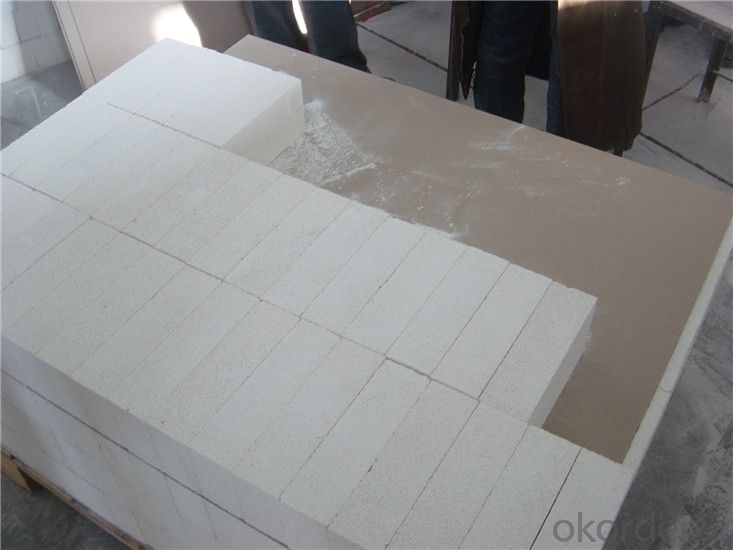
- Q: Can insulating fire bricks be used for insulation in walls or roofs?
- Insulating fire bricks have a primary purpose of being used in high-temperature applications like furnaces, kilns, and fireplaces. Although they provide exceptional thermal insulation properties, they may not be the optimal choice for insulating walls or roofs of residential or commercial buildings. It is common for insulating fire bricks to be manufactured using lightweight refractory materials including ceramic fibers or expanded clay. These materials possess high resistance to heat; however, they may not offer sufficient insulation against cold temperatures or moisture. Furthermore, their structural integrity may not be suitable for load-bearing applications or other specific requirements related to walls or roofs. For insulation in walls or roofs, it is generally advised to utilize materials that are specifically designed for building insulation purposes. Examples of such materials include fiberglass batts, spray foam insulation, or rigid foam boards. These materials are more suitable for providing both thermal and moisture resistance, as well as meeting the necessary structural requirements. To summarize, while insulating fire bricks may provide excellent thermal insulation properties, they are not typically recommended for use in walls or roofs. It is advisable to seek guidance from a building professional or insulation specialist to determine the most appropriate insulation materials for your specific needs.
- Q: How do insulating fire bricks affect the overall fire resistance of a structure?
- Insulating fire bricks enhance the fire resistance of a structure by providing a layer of thermal insulation. They have low thermal conductivity and high heat resistance, which helps to prevent the spread of heat and fire through walls or barriers. This added insulation slows down the transfer of excessive heat, thus increasing the overall fire resistance and protecting the structural integrity of the building.
- Q: Can insulating fire bricks be used in outdoor fire pits?
- Yes, insulating fire bricks can be used in outdoor fire pits. Insulating fire bricks are designed to withstand high temperatures and provide excellent insulation, making them suitable for outdoor fire pits where heat retention and durability are important.
- Q: Can insulating fire bricks be used in the construction of pottery slab rollers?
- Yes, insulating fire bricks can be used in the construction of pottery slab rollers. These bricks can provide thermal insulation and withstand high temperatures, making them suitable for pottery kilns and other heat-intensive applications like slab rollers.
- Q: Can insulating fire bricks be used for insulation in heat treatment furnaces?
- Indeed, insulation in heat treatment furnaces can be achieved through the utilization of insulating fire bricks. These bricks are specially engineered to endure extreme temperatures and offer exceptional thermal insulation properties. With their low thermal conductivity, they effectively trap heat within the furnace. Moreover, their lightweight composition facilitates effortless handling and installation. Insulating fire bricks find widespread application in diverse heat treatment procedures, including annealing, tempering, and hardening, guaranteeing utmost heat retention and energy efficiency within the furnace.
- Q: Are insulating fire bricks resistant to spalling?
- Yes, insulating fire bricks are resistant to spalling.
- Q: How do insulating fire bricks affect overall heating and cooling costs?
- The utilization of insulating fire bricks can have a significant impact on the overall costs associated with heating and cooling. These bricks are specially designed to possess a low thermal conductivity, which makes them highly effective at preventing the transfer of heat. Incorporating insulating fire bricks into the construction of a building greatly reduces the amount of heat lost during colder months, resulting in a decreased need for energy to maintain a comfortable indoor temperature and consequently lowering heating costs. Likewise, during warmer months, insulating fire bricks aid in keeping heat out and maintaining a cooler indoor environment. This diminishes reliance on air conditioning systems, leading to reduced cooling costs. The high thermal resistance of these bricks plays a crucial role in minimizing heat gain from the external environment, offering a more energy-efficient solution. Furthermore, the use of insulating fire bricks can also contribute to the long-term durability and efficiency of heating and cooling systems. By lessening the workload on these systems, they can operate more efficiently, resulting in less wear and tear and potentially extending their lifespan. This can lead to additional cost savings by eliminating the need for frequent repairs or replacements. Overall, insulating fire bricks offer substantial benefits in terms of reducing heating and cooling costs. By enhancing thermal insulation, they facilitate the creation of a more energy-efficient building, ultimately resulting in lower utility bills and a reduced carbon footprint.
- Q: Can insulating fire bricks be used in the construction of aluminum smelting furnaces?
- Yes, insulating fire bricks can be used in the construction of aluminum smelting furnaces. Insulating fire bricks are made from lightweight materials such as refractory clay and have high insulating properties. This makes them ideal for use in high-temperature environments, such as aluminum smelting furnaces, where they can help to conserve heat and improve energy efficiency. Aluminum smelting furnaces typically operate at very high temperatures, often above 1000 degrees Celsius. In these extreme conditions, insulating fire bricks can provide effective thermal insulation, which helps to reduce heat loss and maintain the desired temperature inside the furnace. This insulation can also help to reduce the energy required to heat the furnace, leading to cost savings and increased efficiency. Additionally, insulating fire bricks have excellent resistance to thermal shock, meaning they can withstand rapid temperature changes without cracking or breaking. This is important in an aluminum smelting furnace, where the heating and cooling cycles can be frequent and rapid. Another advantage of using insulating fire bricks in aluminum smelting furnaces is their low thermal conductivity. This property allows them to retain heat within the furnace, preventing it from escaping to the surrounding environment. By reducing heat loss, insulating fire bricks can help to maintain a consistent temperature throughout the smelting process, ensuring optimal conditions for the melting and refining of aluminum. In summary, insulating fire bricks are a suitable choice for the construction of aluminum smelting furnaces due to their high insulating properties, resistance to thermal shock, and low thermal conductivity. Their use can help to improve energy efficiency, reduce heat loss, and maintain a stable temperature within the furnace.
- Q: Can insulating fire bricks be used in the construction of steam boilers?
- Yes, insulating fire bricks can be used in the construction of steam boilers. They are designed to have high thermal resistance, low heat conductivity, and excellent insulation properties, which make them suitable for use in steam boilers. Insulating fire bricks help to retain heat efficiently, reduce energy loss, and improve the overall efficiency of the boiler system.
- Q: Can insulating fire bricks be used in low-temperature applications as well?
- Yes, insulating fire bricks can be used in low-temperature applications. These bricks are designed to have low thermal conductivity, making them suitable for retaining heat and insulating against temperature fluctuations. They can effectively withstand lower temperatures while still providing insulation and preventing heat loss.
Send your message to us
Refractory White Brick Fire Brick Fused Azs Brickinsulating Fire Brick
- Loading Port:
- China main port
- Payment Terms:
- TT or LC
- Min Order Qty:
- 3 m.t.
- Supply Capability:
- 10000 m.t./month
OKorder Service Pledge
OKorder Financial Service
Similar products
Hot products
Hot Searches
Related keywords
